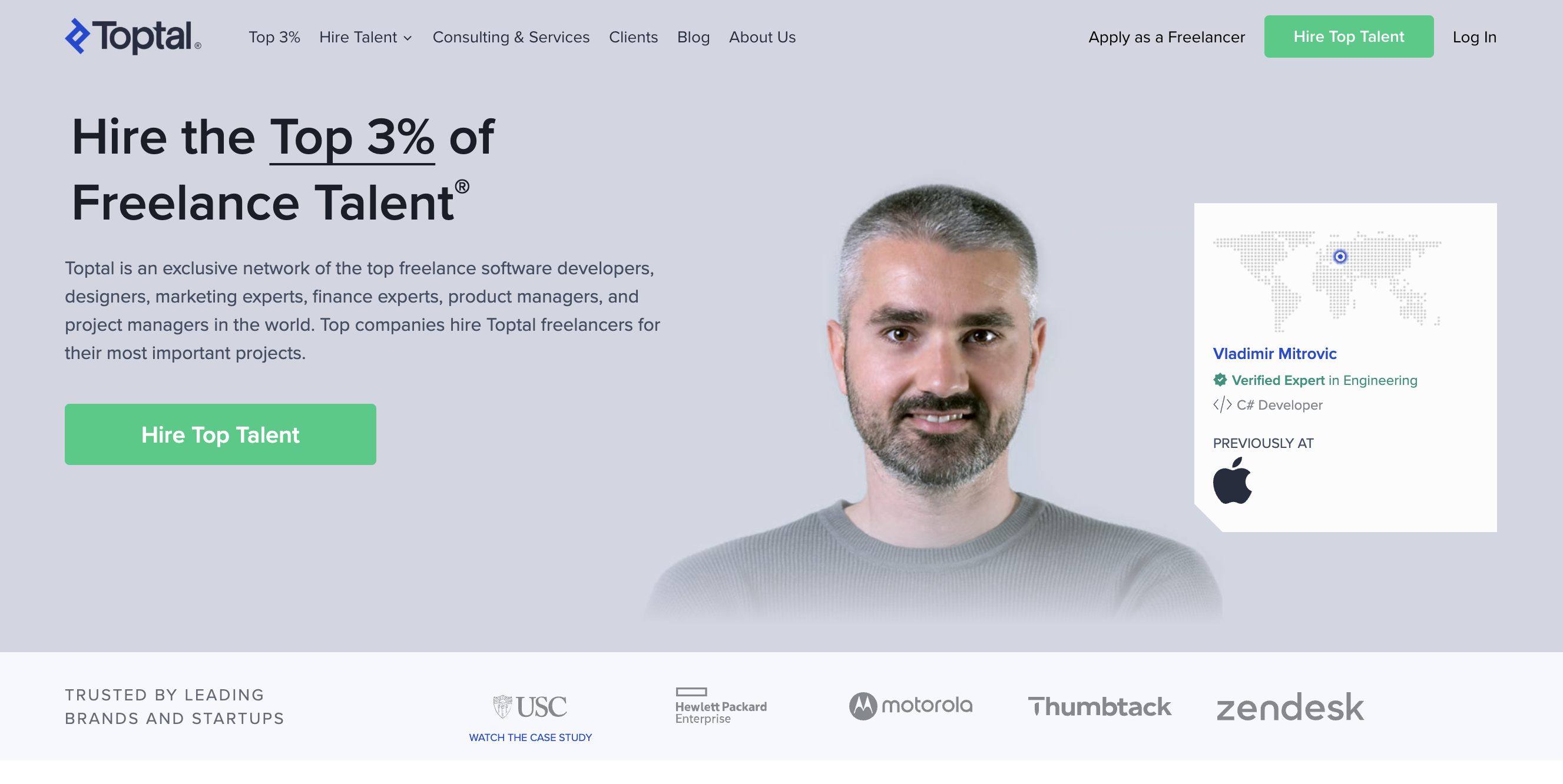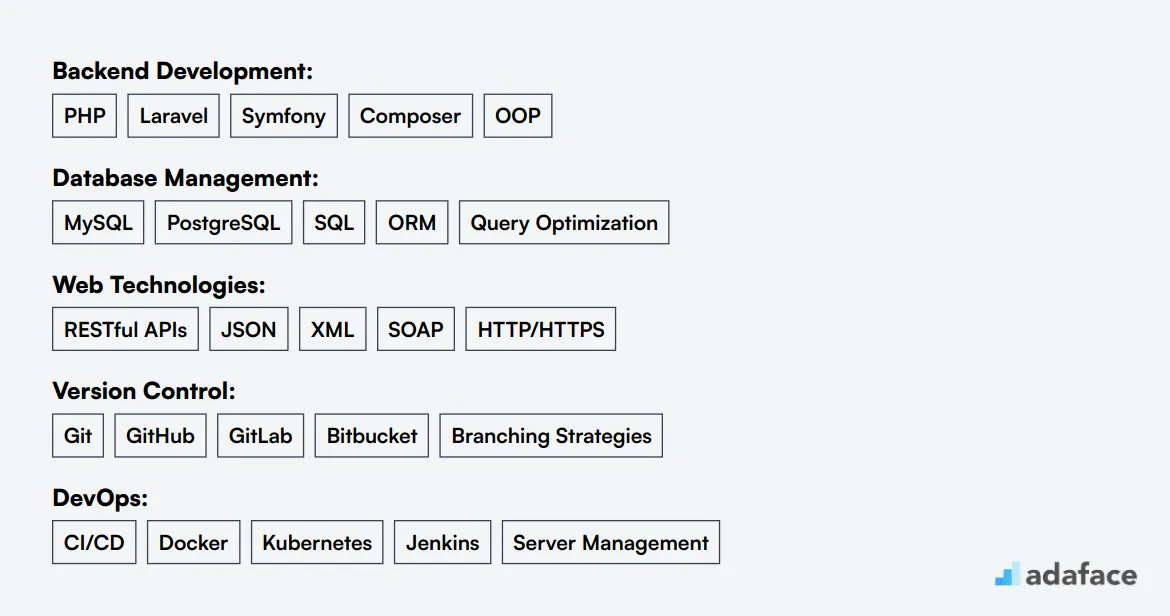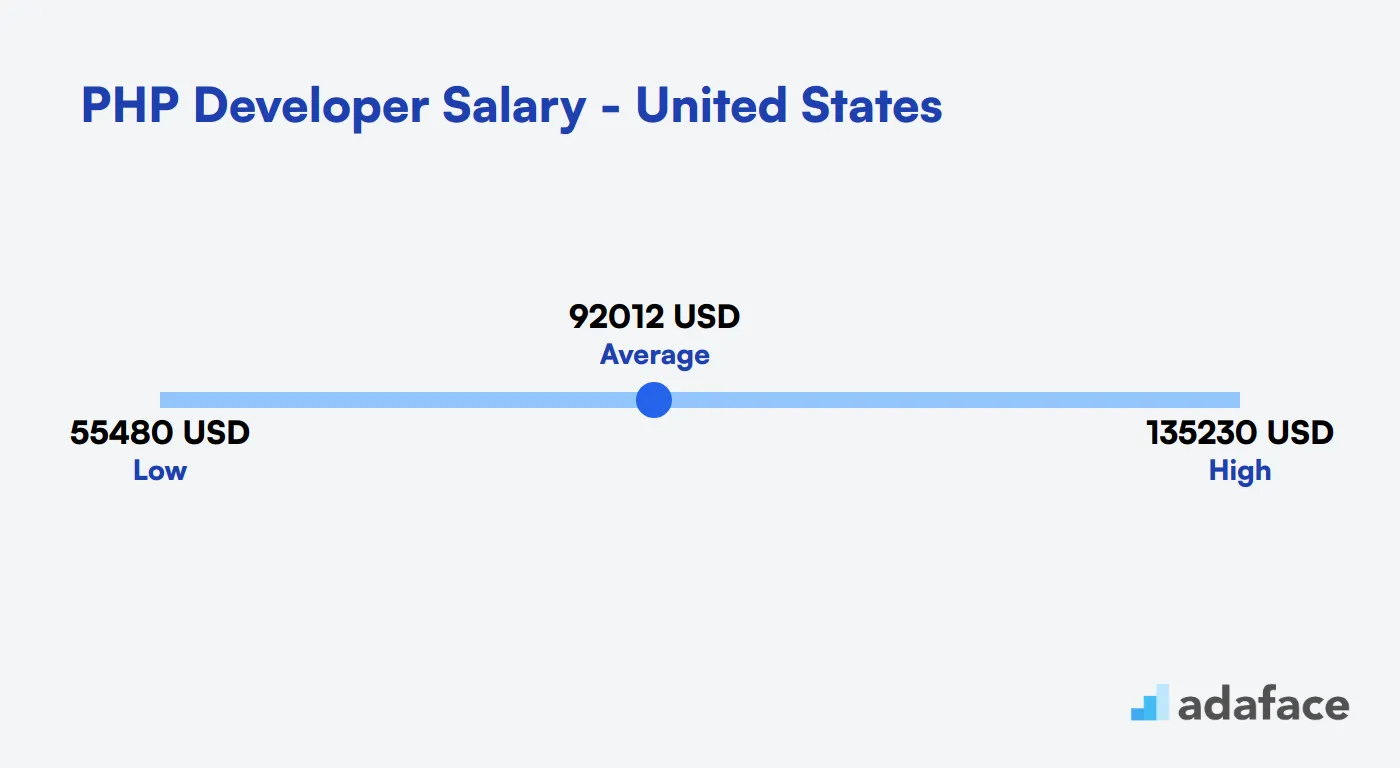Hiring skilled PHP developers is a common challenge for many companies. As the backbone of numerous web applications, PHP remains a key technology, making the search for talented developers competitive. Recruiters often struggle to identify candidates who possess not just technical prowess, but also the ability to adapt to evolving project needs and collaborate effectively within teams.
This comprehensive guide will walk you through the process of hiring top-notch PHP developers. We'll cover everything from understanding the role to crafting compelling job descriptions, and provide insights on effective screening methods. For a deeper dive into PHP-specific interview questions, check out our PHP developer interview questions resource.
Table of contents
What Does a PHP Developer Do?
A PHP developer specializes in creating dynamic web applications and websites using the PHP programming language. They work on both the server-side and client-side of web development, often collaborating with other team members to build robust and scalable web solutions.
The day-to-day responsibilities of a PHP developer include:
- Writing clean, efficient PHP code to implement website features and functionality
- Integrating front-end components with server-side logic
- Working with databases like MySQL to store and retrieve data
- Troubleshooting and debugging code issues
- Optimizing website performance and security
- Collaborating with designers and other developers on projects
- Staying updated on PHP best practices and new technologies
PHP Developer Hiring Process
The hiring process for a PHP developer typically takes around 1-2 months.
- Post the PHP Developer job description on relevant job boards and begin receiving resumes within 3-4 days.
- Shortlist candidates based on their resumes and conduct skill assessments or coding tests. This process usually takes a week.
- Interview the shortlisted candidates to evaluate their technical knowledge, problem-solving abilities, and cultural fit.
- Make an offer to the top candidate(s) after considering all factors.
While the timeline may vary, this process outlines the key steps involved in hiring a PHP developer. We'll delve deeper into each step in the following sections.
Skills and Qualifications to Look for in a PHP Developer
When creating a candidate profile for a PHP Developer, it's easy to misjudge the balance between technical skills and qualifications. Recruiters often struggle to distinguish between what's required and what's just a nice-to-have. Clearly defining these can streamline the hiring process and attract the right talent.
For instance, proficiency in the PHP programming language and experience with web development frameworks like Laravel or Symfony are typically required. Meanwhile, familiarity with front-end technologies such as HTML, CSS, and JavaScript might be more of a preference depending on your team's structure. It's vital to tailor these requirements to what your company truly needs.
Having a strong grasp of MySQL or other relational databases is usually necessary, as is familiarity with version control systems like Git. It’s beneficial to consider someone who understands RESTful APIs. To further refine your search, consider incorporating tools like PHP Developer Skills Assessment to ensure candidates meet the technical demands of the role.
| Required skills and qualifications | Preferred skills and qualifications |
|---|---|
| Proficiency in PHP programming language | Experience with front-end technologies (HTML, CSS, JavaScript) |
| Experience with web development frameworks (e.g., Laravel, Symfony) | Familiarity with cloud platforms (AWS, Azure, or GCP) |
| Knowledge of MySQL or other relational databases | Knowledge of containerization (Docker) and orchestration (Kubernetes) |
| Familiarity with version control systems (e.g., Git) | Experience with unit testing and test-driven development |
| Understanding of RESTful APIs and web services | Understanding of agile development methodologies |
How to write a PHP Developer job description?
Once you have a clear candidate profile, the next step is to capture that information in the job description to attract the right candidates. A well-crafted PHP Developer job description not only outlines the role but also resonates with potential applicants.
- Highlight key responsibilities: Clearly define the core responsibilities of the PHP Developer, including specific tasks such as developing web applications and optimizing backend processes. This helps candidates understand their potential impact within your team.
- Balance technical skills with soft skills: While it’s important to mention technical proficiencies like PHP frameworks, MySQL, and version control systems, don’t forget to include soft skills such as teamwork and problem-solving. A well-rounded candidate will fit your company culture and contribute positively.
- Showcase your company and role's unique selling points: Mention what makes your company a great workplace, such as innovative projects or growth opportunities. Highlighting the benefits of working with you can make your job listing stand out against others. For more detailed examples, refer to the PHP Developer job description.
Top Platforms to Source PHP Developers
Now that you have a well-crafted job description, it's time to list it on job platforms to attract potential candidates. The right platform can significantly impact the quality and quantity of applications you receive. Let's explore some popular options for finding skilled PHP developers.
LinkedIn Jobs
Ideal for finding full-time PHP developers with professional networks. Allows detailed screening of candidates' work history and skills.

Indeed
Large job board with a wide range of PHP developer positions. Good for attracting a diverse pool of candidates for various skill levels.

Toptal
Platform for hiring top-tier freelance PHP developers. Best for companies seeking highly skilled professionals for project-based work.

Beyond these major platforms, there are several other options tailored to specific hiring needs. These include tech-focused job boards like Stack Overflow Jobs and Dice, startup-oriented platforms like AngelList, and remote work specialists such as FlexJobs and We Work Remotely. Each platform offers unique advantages, allowing you to target your search based on factors like employment type, company size, and work arrangement preferences.
How to Screen PHP Developer Resumes
Resume screening is a crucial step in narrowing down potential candidates for a PHP developer role. By filtering out resumes that don't align with the necessary skills, recruiters can focus on interviewing the most promising applicants.

When manually screening resumes, it's important to look for specific keywords that align with the required skills for the role. Key skills and qualifications include proficiency in PHP, experience with frameworks like Laravel or Symfony, and knowledge of MySQL. Familiarity with version control systems such as Git and understanding of RESTful APIs can also be important indicators of a suitable candidate.
Incorporating AI LLMs like ChatGPT can streamline the screening process by automating the identification of key skills. You can input the desired keywords and have the AI analyze resumes for relevant matches, saving time and ensuring consistency.
Here's a sample prompt to help automate resume screening for a PHP Developer role:
TASK: Screen resumes to match job description for PHP developer role
INPUT: Resumes
OUTPUT: For each resume, provide the following information:
- Email id
- Name
- Matching keywords
- Score (out of 10 based on keywords matched)
- Recommendation (whether to shortlist this candidate or not)
- Shortlist (Yes, No or Maybe)
KEYWORDS DATA:
- PHP, Laravel, Symfony
- MySQL, SQL, ORM
- RESTful APIs, Git, GitHub
For more details on setting up coding assessments for PHP developers, consider exploring Adaface's PHP Online Test and insights on PHP Developer Interview Questions.
Recommended Skills Tests to Screen PHP Developers
When hiring a PHP developer, assessing the candidate's technical skills is key to ensuring they are the right fit for your team. Skills tests provide a clear, objective way to evaluate a candidate's coding proficiency. Here are our top testing recommendations:
PHP Online Test: This test evaluates core PHP competencies, making it ideal for screening candidates' coding abilities in the language. It ensures the developer can handle PHP-specific tasks effectively.
Laravel Developer Online Test: Laravel is a popular PHP framework. Use this test to assess your candidates' understanding of the Laravel ecosystem, which is crucial for projects that rely on this framework.
WordPress Online Test: If your projects involve WordPress, this test checks candidates' skills in PHP, WordPress theme development, and plugin management, ensuring they can maintain and build upon existing WordPress sites.
Full Stack Developer Test: For roles requiring both frontend and backend skills, this test evaluates a range of competencies, including PHP, JavaScript, and HTML, to ensure candidates can manage full-stack responsibilities.
SQL Test: Given that many PHP applications interact with databases, testing SQL skills ensures candidates can effectively manage and manipulate data within your PHP projects.
Case Study Assignments to Evaluate PHP Developers
Case study assignments can be valuable for assessing PHP developers' skills, but they come with drawbacks. They're often time-consuming, leading to lower completion rates and potentially losing good candidates. Despite these challenges, well-designed case studies can offer insights into a candidate's problem-solving abilities and coding practices.
E-commerce Platform Enhancement: This case study tasks developers with improving an existing online store's performance and features. Candidates might need to optimize database queries, implement caching mechanisms, or add new functionalities like a recommendation system. It tests their ability to work with legacy code and enhance system efficiency.
API Integration Project: Developers are asked to create a PHP application that integrates with external APIs. This could involve building a weather app using public APIs or a social media dashboard. The assignment evaluates their skills in API consumption, data parsing, and creating clean, maintainable code.
Content Management System (CMS) Development: This case study involves building a basic CMS from scratch or extending an existing one like WordPress. Candidates need to implement user authentication, content creation/editing features, and possibly a plugin system. It assesses their understanding of PHP frameworks, database design, and security best practices.
Structuring Technical Interviews for PHP Developers
After candidates pass initial skills tests, it's time for technical interviews to assess their hard skills in-depth. While skills tests are great for filtering out unqualified applicants, technical interviews help identify the best fit for your specific PHP developer role. Let's explore some key questions to ask during these interviews.
Consider asking: 'Can you explain the difference between GET and POST methods?', 'How would you prevent SQL injection in PHP?', 'What's your experience with PHP frameworks like Laravel or CodeIgniter?', 'How do you optimize PHP code for better performance?', and 'Can you describe a challenging PHP project you've worked on?'. These questions help evaluate a candidate's understanding of PHP fundamentals, security practices, framework knowledge, optimization skills, and real-world problem-solving abilities.
Understanding the Cost of Hiring a PHP Developer
The cost of hiring a PHP Developer varies widely based on several factors, including experience, location, and the specific skills required. In general, you can expect to pay an average salary ranging from $55,000 to $135,000 per year, with the median hovering around $92,000 in the United States. This price can fluctuate significantly depending on the demand in your area and the developer's expertise.
PHP Developer Salary in the United States
The average salary for a PHP Developer in the United States is approximately $92,012 per year. Salaries can range from a low of $55,481 to a high of $135,230, depending on factors like location and experience. Cities like Dallas and Atlanta report median salaries around $107,818 and $101,390, respectively, illustrating the impact of geographic differences.

What's the difference between a Front-End PHP Developer and a Back-End PHP Developer?
Many people confuse front-end and back-end PHP developers due to their overlapping use of PHP. However, these roles have distinct focuses and responsibilities in web development.
Front-end PHP developers primarily work on the user interface. They use HTML, CSS, and JavaScript alongside PHP to create responsive web layouts and enhance user interactions. Their main goal is to improve the visual appeal and usability of websites.
Back-end PHP developers, on the other hand, focus on server-side logic and database management. They work with PHP, MySQL, and Linux to build APIs, optimize database queries, and ensure server performance. Their primary concern is data handling and server-side functionality.
Key differences include:
- Tools: Front-end developers use browser developer tools, while back-end developers use PHPUnit and Postman.
- Collaboration: Front-end developers work closely with designers, whereas back-end developers collaborate more with DevOps teams.
- Security: Front-end developers tackle cross-site scripting issues, while back-end developers focus on data protection.
Understanding these differences helps recruiters match candidates to the right roles and build balanced development teams.
| Front-End PHP Developer | Back-End PHP Developer | |
|---|---|---|
| Primary Focus | User Interface Development | Server-Side Logic |
| Tools and Frameworks | HTML, CSS, JavaScript | PHP, MySQL, Linux |
| User Interaction | High | Low |
| Performance Optimization | Load Speed, Responsive Design | Database Queries, Server Performance |
| Key Responsibilities | Designing Web Layouts | Building APIs |
| Collaboration | Work with Designers | Work with DevOps |
| Security Concerns | Cross-Site Scripting | Data Protection |
| Testing Tools | Browser Developer Tools | PHPUnit, Postman |
What are the ranks of PHP Developers?
PHP developers often have different levels of expertise and responsibilities within an organization. Understanding these ranks can help recruiters and hiring managers identify the right fit for their team's needs.
- Junior PHP Developer: This is an entry-level position for those with basic PHP knowledge. They typically work on simple tasks, bug fixes, and assist senior developers with larger projects.
- Mid-level PHP Developer: With a few years of experience, mid-level developers take on more complex tasks. They often work independently on moderate-sized projects and may mentor junior developers.
- Senior PHP Developer: These developers have extensive experience and deep knowledge of PHP and related technologies. They lead complex projects, make architectural decisions, and often mentor junior and mid-level developers.
- Lead PHP Developer: Lead developers oversee entire PHP development teams. They're responsible for project planning, code quality, and team performance. They often collaborate with other departments and stakeholders.
- PHP Architect: At the highest level, PHP architects design large-scale systems and make critical technology decisions. They often work across multiple projects and teams, ensuring best practices and scalability in web applications.
Hire the Best PHP Developers for Your Team
In this post, we've walked through the entire journey of hiring a PHP developer, from understanding their role to crafting effective job descriptions and selecting the right candidates through resumes and skills tests. We've also explored how to structure interviews and discussed the costs involved in hiring a PHP professional.
Remember, if there's one thing to take away, it's the importance of using precise job descriptions and relevant skills tests to ensure you hire the right talent. Utilizing targeted assessments like our PHP online test can dramatically improve your hiring success by accurately evaluating the skills of potential candidates.
PHP Online Test
FAQs
Key skills for PHP developers include proficiency in PHP, knowledge of frameworks like Laravel or Symfony, database management (especially MySQL), version control systems, and web development basics (HTML, CSS, JavaScript). Soft skills such as problem-solving, communication, and teamwork are also important.
Look for relevant experience with PHP projects, familiarity with popular frameworks, and contributions to open-source projects. Pay attention to candidates who demonstrate continuous learning and have experience with modern PHP practices and tools.
Popular platforms for finding PHP developers include LinkedIn, GitHub, Stack Overflow Jobs, and specialized tech job boards. You can also consider attending tech meetups or conferences focused on PHP or web development.
Start with questions about their PHP experience and projects. Include coding challenges that test their problem-solving skills and PHP knowledge. Discuss system design and ask about their experience with relevant tools and frameworks. Consider using a PHP online test for initial screening.
Junior developers typically have 0-2 years of experience and require guidance. Mid-level developers (2-5 years) can work independently on projects. Senior developers (5+ years) have deep expertise, can architect complex systems, and often mentor others.
Use coding challenges or case study assignments that simulate real-world problems. Look for their approach to breaking down complex issues, efficiency of solutions, and ability to explain their thought process clearly.
Include required skills, experience level, specific PHP frameworks or tools used in your projects, responsibilities, and information about your development environment. Highlight opportunities for growth and any unique aspects of your team or projects. For a template, see our PHP developer job description guide.

40 min skill tests.
No trick questions.
Accurate shortlisting.
We make it easy for you to find the best candidates in your pipeline with a 40 min skills test.
Try for freeRelated posts
Free resources



